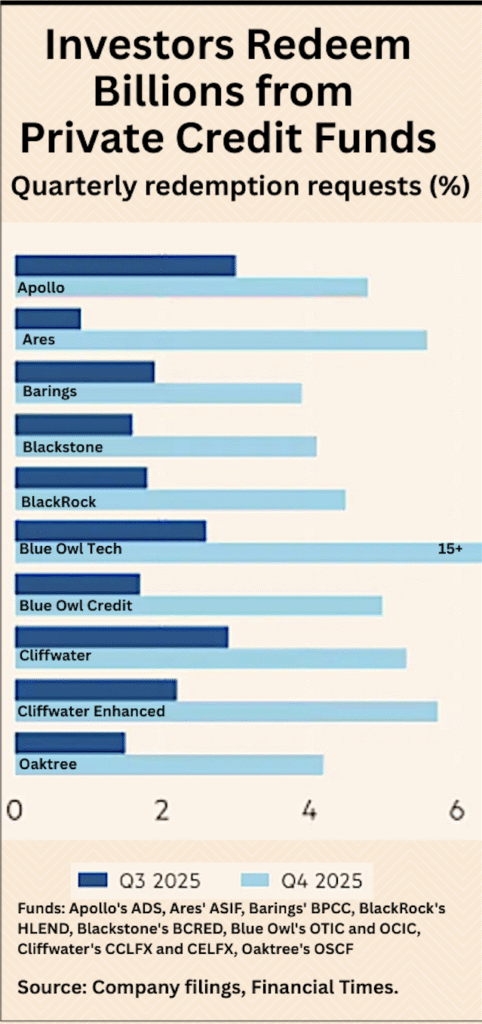
As if we weren’t already deeply divided, Americans are now asked to stand six feet apart. Clear verbal communication, not communicable viruses, is now essential. Words can be contagious, for good or ill. If the following comments go viral, no harm will be done, and maybe some good.
This week, RIJ asked some of the influencers in its network to share their thoughts about our unprecedented medico-political-economic dilemma. Here’s what economists, insurance agents, financial advisers, and entrepreneurs told us:
‘Don’t wait for the good news’
Stocks will begin to recover long before the pandemic is on the wane. The strongest bull markets are not built on a foundation of good news, but on diminishing bad news. Wouldn’t it be nice if the world of academic finance had coined the expression “equity fear premium” instead of “equity risk premium”?! That premium is at its best when fear is at a peak. It will be hard to be perfectly right on the turning point, naturally, but don’t wait for the good news—just wait until the pattern of bad news lets up. —Rob Arnott, Research Associates
Time for ‘Series I Savings Bonds’
The current crisis has intensified risk and made Series I Savings Bonds even more desirable. As I have written many times before, these bonds are the best kept secret in America. There is an annual limit of $10,000 per person, and I advise all of my friends and relatives to buy the maximum every year. Here is a recent interview I gave on the subject: America’s Best Kept Investing Secret. —Zvi Bodie, Boston University
‘Who is selling and why?’
Revelatory moments break generalizations about generations. Boomer retirement plans become at least more clearly dichotomized: Probability-based plans vs. Safety-first plans. The former seemed wiser before. The latter seems wiser now. The uncertain wisdom of the choice of plan remains. Is this revelatory moment a reset of future business growth, such that prices cannot swing back the other way, and fast? Selling breaks the uncertainty by realizing the loss. Do you have a sense of who is selling and why? How many have their Household Balance Sheet assets matched or mismatched to the duration of their liabilities? —Francois Gadenne, co-founder, chair and executive director of The Curve Triangle & Rectangle Institute
‘Flight to safety’
There’ll be a flight to safety with annuities. The market that we’re witnessing now will drive annuity sales because people will realize they need more guarantees in their portfolios than they have currently. They’ll say, ‘We probably shouldn’t be this deep into risk.’ The demographic tidal wave of baby boomers reaching retirement age wants guarantees, and annuities are the only product on the planet that provide a lifetime income stream.—Stan ‘The Annuity Man’ Haithcock, in ThinkAdvisor
‘No one has pulled out of the [annuity] business’
Companies are reducing rates, pulling select annuities, pulling select riders, but no one has pulled out of the business yet. Although it seems like the sky is falling, this is the PERFECT market environment for sales. Consumers want guarantees, and annuities are all about the guarantees.—Sheryl Moore, CEO, WinkIntel
‘Production will be crippled for some time’
The Great Depression of the 1930s witnessed a huge shock to aggregate demand. What we are now experiencing is a huge shock to aggregate supply; albeit one that will have depressing multiplier effects on demand. A strong stimulative package is desperately needed, but it will not be able to restore GDP to its pre-Coronavirus level, because production will be crippled for some time. A well-designed package will help offset the decline in personal expenditure of laid-off workers and self-employed persons for those goods and services the economy is still capable of producing.—Sandy Mackenzie, former editor, Journal of Retirement
The trend toward longer retirements will end
Projections of retirement security will soon be changing to reflect a more realistic assessment of what returns will be available to old and young retirees alike. I hope that financial advisers and intermediaries start learning their lesson.
All of this builds on top of a public system that cannot possibly support its current level of guaranteed benefits for what will rise to close to one-third of the adult population if people continue to retire on average at age 64. The almost century-long trend toward ever more years spent in retirement will almost certainly end, if for no other reason than that someone must meet the demand for labor.
At the same time, the stock crash will increase public demand for the government, rather than a risky market, to provide retirement security—which in many ways could be supplied and afforded if we recognize the need for labor and emphasize a minimum base of support. The spur for more retirement security induced by the crash may require those with above-median income to work more, save more, and pay more taxes (though don’t expect to hear any of this from those running for office). —Eugene Steuerle, the Urban Institute.
A moratorium on foreclosures, evictions and debt collection
Forget the Trump re-election gambit of $1,000-2,000 checks for all. The problem is a collapse of supply, not demand. Putting more cash into the economy is not a solution when people cannot go to work. We should tackle the health crisis directly (free testing and Federal government single-payer medical care for all who might have been exposed; Federal government-paid sick leave and parental leave for all affected by the crisis) and then deal with those affected economically (more inclusive and higher paying unemployment benefits for ANYONE who has lost work or hours because of the crisis; Federal government cash payments targeted to those who need it most) and as well affected small business (loans or grants, but with conditionality).
Since the 2007 crash, the biggest corporations have enjoyed high profits, but instead of investing, they used all their profits for stock-buybacks and because of that they have no cushion for the proverbial “rainy day.” And now it is pouring. Any financial or nonfinancial corporation that seeks help must be effectively nationalized under the control of a government-appointed manager. All the corporation’s top management would submit letters of resignation that could be used at any time by the government’s manager to clean house. Stock buy-backs for recipients of government aid would be banned; CEO pay would be permanently reduced to appropriate General Schedule levels; and the government’s manager would decide whether it is in the nation’s interest to try to save the firm or to shut it down.
Finally we need a moratorium on foreclosures, evictions of renters, debt collections, student loan debt, utilities bills, late fees, hikes of rents or interest rates, and all taxes until the crisis passes. Significant jail time for anyone who violates the moratorium. —Randall Wray, Senior Scholar, Levy Economics Institute, Professor of Economics, Bard College
‘We need something good to come out of this’
After an 11-year bull market, the past 30 days will most certainly serve as a wakeup call for both advisors and investors. Even prior to these events, many of those in and near retirement were already taking steps to protect their retirement portfolio from the volatility of the markets. Without a doubt, that trend will now accelerate. Any product that can provide some level of protection and/or income guarantees will likely see increased demand.
The industry itself will change forever. By the time this crisis passes, flexible work schedules and working remotely will no longer be something done by portions of the workforce as a convenience to those workers. Such work schedules will become a way of life for virtually every firm. In addition, I predict that this crisis will finally drag the insurance and annuity industry into the 21st century.
By the time we settle into the new normal, our need to continue to function—when so many can’t come into the office—will finally bring an end to all of the passing of paper, processing of physical checks and the need for wet signatures (and don’t even get me started on faxes). One can only hope I’m right about that, because we need something good to come out of this.—Scott Stolz, annuity distribution
Volatile retirement income creates anxiety
The current conditions in the financial markets are revealing that Denmark, with its growing emphasis on variable income annuities (payments fluctuate with the markets), is facing a retirement crisis. These products imply riding a roller coaster of retirement income. The initial income is affected by sudden market swings; market volatility will cause your retirement income to vary too much from year to year, creating anxiety among retirees and is soon-to-be retirees.—Per Linnemann, former Chief Actuary, Denmark
‘A longer path to improvement’
While acknowledging the Life/Annuity industry’s strong capital and liquidity resources, the report identified these challenges:
- A material acceleration in a global economic slowdown, increasing the expectation of dampened earnings throughout 2020 for spread and fee-driven businesses
- A rapid further deterioration in the U.S. economy, paired with its direct impact on equities and interest rates
- A greater expectation of a longer path to sufficient improvements from record low levels for the 10-year Treasury yield, as well as a flattened yield curve.—A.M. Best Company, March 17, 2020
Insurance has a unique advantage
Like all intermediated retail financial products, life insurance and annuities have a nontrivial distribution cost, but in the case of insurance products, it is somewhat alleviated by the embedded interest rate in the policies and tax deferral. However, when the embedded interest rate goes toward zero, the tax deferral aspect means nothing and the cost of distribution becomes more obvious and off-putting to potential purchasers. The same can be said of other intermediated financial products, such mutual funds, hedge funds and the like.
But life insurance and annuities do address some concerns through the pooling of risks and guarantees that cannot be matched by other intermediated financial products. While those customers who purchase insurance products solely for their financial attractiveness may be dissuaded under current circumstances, still there remains nothing else that can insure against living too short or too long.
As long as agents stress these features and find clients who are interested in managing these risks, they have an advantage over other marketers.—David Babbel, emeritus professor, Finance and Insurance, the Wharton School.
‘Keep working, delay Social Security’
You can’t ‘should have done’ anything. It’s simply not possible, so take a few deep breaths and try to relax. So, you didn’t reduce your exposure to equities when you had the chance. You didn’t move 20% of your retirement savings into a deferred annuity to ‘take some risk of the table’, as Tom Hegna says. Keep working if you can. Delay taking Social Security. Consider a Home Equity Conversion Mortgage (HECM, or reverse mortgage) line of credit if you need income now. Just don’t make any knee-jerk decisions you can’t take back, like panic selling. Things will improve. They always do. This time, just don’t go back to whatever you were doing and forget about your to-do list of financial and insurance decisions. You may not get another chance to get it right. —Bill Borton, W.R. Borton & Associates
‘A mad scramble’
We’ve had two cruises cancelled in the past six weeks. Just today we returned from Quito where our trip to the Galapagos was cancelled. The Ecuadorian government was going to close the Quito airport at midnight Monday. There was a mad scramble to get out.
The recent experience has caught everybody—not just the cruise industry—scrambling to figure out how best to deal with it. Nursing homes like that one in Seattle show how easily viruses can spread. Will people change their minds about putting loved ones in nursing homes? If so, what alternatives are there? What about retirement communities in general? Will they become breeding grounds for viruses? Don’t know the answer to either question.—Steven Slifer, Numbernomics.com
© 2020 RIJ Publishing LLC. All rights reserved.



